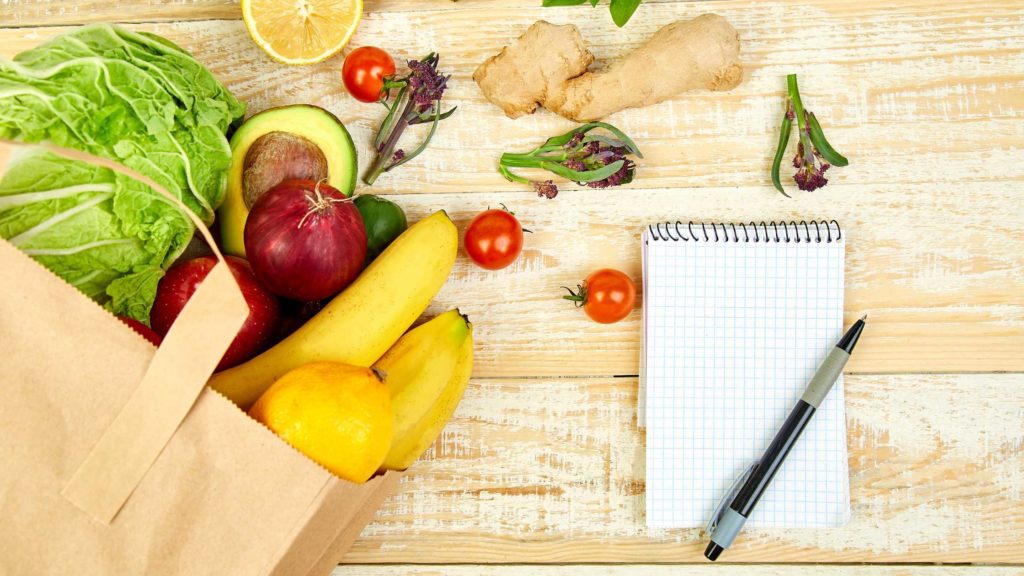Menu
Download our mobile app
today for exclusive savings and rewards!
today for exclusive savings and rewards!
Get Prepared for Easter with Fresh Farms | Now Available Baby Lambs
(Please Ask Our Meat Department For Assistance. Available at all stores except for Devon Ave)

Feeling overwhelmed about what to buy in the grocery store? Believe us, we all go through that. With many food choices on display, you aim to get one that suits your dietary needs.
Whether it’s to address your health issues, beliefs, or lifestyle changes, you must stick to diets that help you with your goals.
Today, we want to help you ensure that whatever you place in your grocery cart caters to your dietary needs.
Let’s look at gluten-free, vegan, keto essentials and general tips to have a delicious and nutritious pantry!
Do you look at your food labels before buying them? If not, you must have wondered why other people do.
Dietary restrictions can be a choice or a need. Below are the reasons behind why these restrictions are essential.
If you have allergic reactions to specific foods, choose those that won’t give you side effects.
If some of you have Coeliac disease, you are intolerant to wheat, barley, and rye.
Diets can contribute to living a healthy lifestyle. If you have a family member with epilepsy, having a keto diet can control seizures and battle other chronic diseases.
Some would like to help the planet by eating veggies instead of meat.
Diets are primarily known for those who want to lose weight. Knowing what you should buy will help you achieve your milestones. Also, some just like to explore different and healthy cuisines.
Muslims, for example, follow Halal dietary laws. This is another reason to restrict your needs.
Gluten is a protein usually found in wheat, barley, or even rye bread. If you see your bread as chewy and elastic, that’s because of this ingredient.
Gluten is also found in other products that you might not expect, such as:
If you’re about to put them on the shopping list, stop right now! There are still some flavorful products to consider. For instance:
Ready to create plant-based meals for your diet? So you can get the most out of it, let’s get you ready with veganism in mind.
To become vegan, remember what you must avoid: meat, poultry, dairy, eggs, or anything from animals. To have a balanced amount of nutrients in your body, here’s what you need:
Flaxseeds
Adding these items to your cart can prepare nutritious vegan meals that your family members will never forget.
Unlike a typical Western diet, the ketogenic or keto diet aims to get your body into “ketosis”. This means you cut down on carbohydrates. Instead, you consume more fats (like butter, oils, and avocados) and proteins.
Going for this diet means adjusting your meal plans even if you’re busy daily. You’ll need to change your grocery shopping habits:
Focus on whole foods like fresh produce, nuts, and grains. These products are not usually processed much. It assures you that you get more nutrients rather than unwanted ingredients.
2. Check the Labels
The back of every product you buy will be your lifesaver. Even if you think the item meets your needs, the ingredients can tell a different story.
For instance, a product says that it’s all “natural”. Then, later on, it’s high in fructose corn syrup. Or let’s say a gluten-free item is processed in a wheat factory.
3. Promote Local
Every supermarket in your town can cater to your dietary needs, but there are dedicated local food stores that can benefit you. Here’s why:
Moreover, local markets might introduce you to new and unique foods specifically for your dietary needs.
Our body is unique as it is. Some nutrients suit one but not the other. That’s why it’s all thanks to these three diets that we can go grocery shopping for what we need.
A place that can help you meet your body’s needs is Fresh Farms. Every aisle allows you to discover new foods and ingredients that suit your diet.
You can meet and deliver your needs to your doorstep or pass through every aisle in our physical store. Let Fresh Farms be your trusted friend who helps you embrace your path to wellness!
Eat well.
Save time.
Live better.